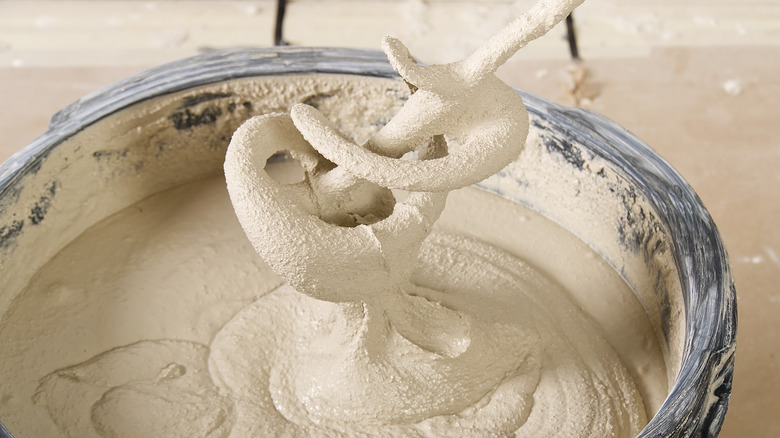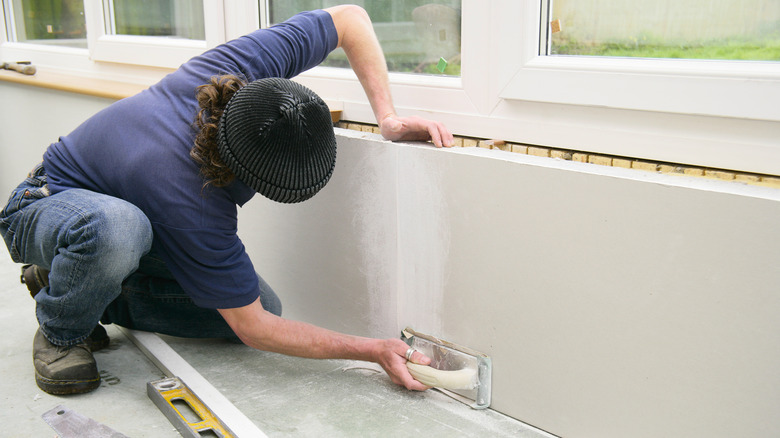The Vinegar Trick That Extends Plaster Drying Time (& Should You Try It?)
Whether you are mixing up a small batch of plaster for a trendy wall art project or a bucket full for putting a smooth finish on a new wall, one of the common challenges you face is using it all up before it dries. Often you're left with a solid lump in the bottom of the container. Not only is it a waste, it's also a pain to clean out before you can start again.
A popular trick to extend plaster drying time is to add vinegar, and it is claimed to work for both plaster of Paris used for crafts, and gypsum-based plasters used in construction. Vinegar's effectiveness when added to laundry has long been proven, but this is a whole different hack. So the big questions are: Does it work? And are there any downsides?
Scientific evidence is hard to come by. However, the suggestion is not just popular on modeling and DIY sites but also on professional contractors forums. So it seems that next time you want to extend plaster drying time, white vinegar will do the trick. Advice about how much to add varies so you'll need to experiment. If you're mixing up a small batch, try just a few drops. In a bucket, you might need a cap full. Don't add too much or you could weaken the plaster. In case you were wondering, malt vinegar also works but will color the mix.
Be careful, too much vinegar could lead to problems
All vinegars are basically acetic acid, flavorings, and water. Plaster of Paris and gypsum both contain calcium sulfate. When the two are mixed, the reaction between the acid and the plaster results in a softer, slower-drying consistency of the plaster. Unfortunately, the acetic acid can also weaken the plaster. Adding a small amount to gypsum shouldn't be a problem when plastering a wall because you don't need a lot of strength. But a patch test is always a good idea. If you are using plaster of Paris to make molds, models, or anything structural, you'll want to experiment before committing to the final project. Too much vinegar and the plaster may break or crumble.
There are a couple of alternatives to vinegar to extend plaster drying times that you might also find in the kitchen. Lemon and lime juice are weak acids that work in the same way. You can also try cream of tartar. It has numerous unexpected uses around the home, and according to some trade sources, extending the drying time of plaster is one of them.

